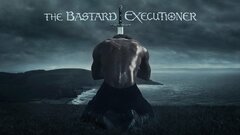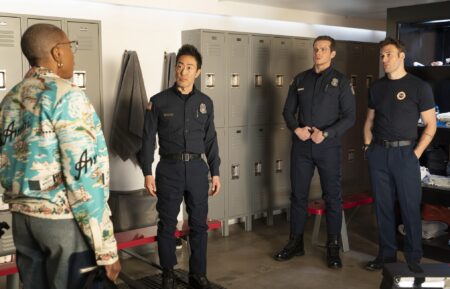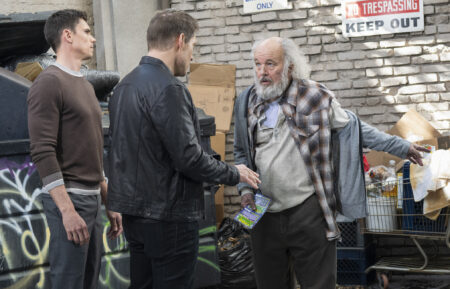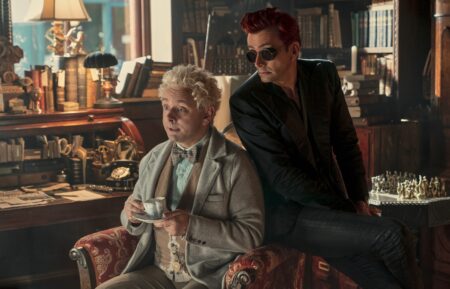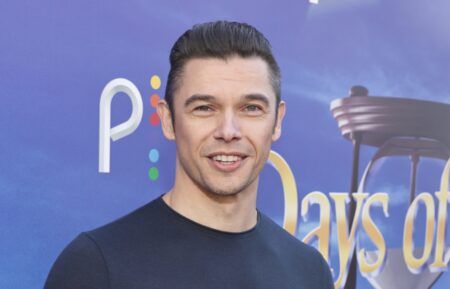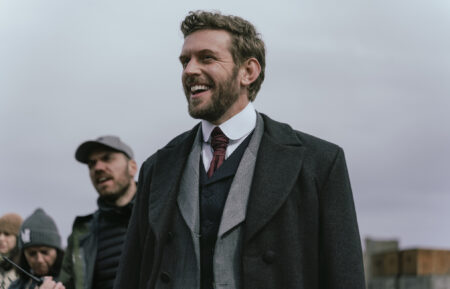Kurt Sutter on Why ‘The Bastard Executioner’ Is Set in Wales, and How Matthew Rhys Made His Dad Cry
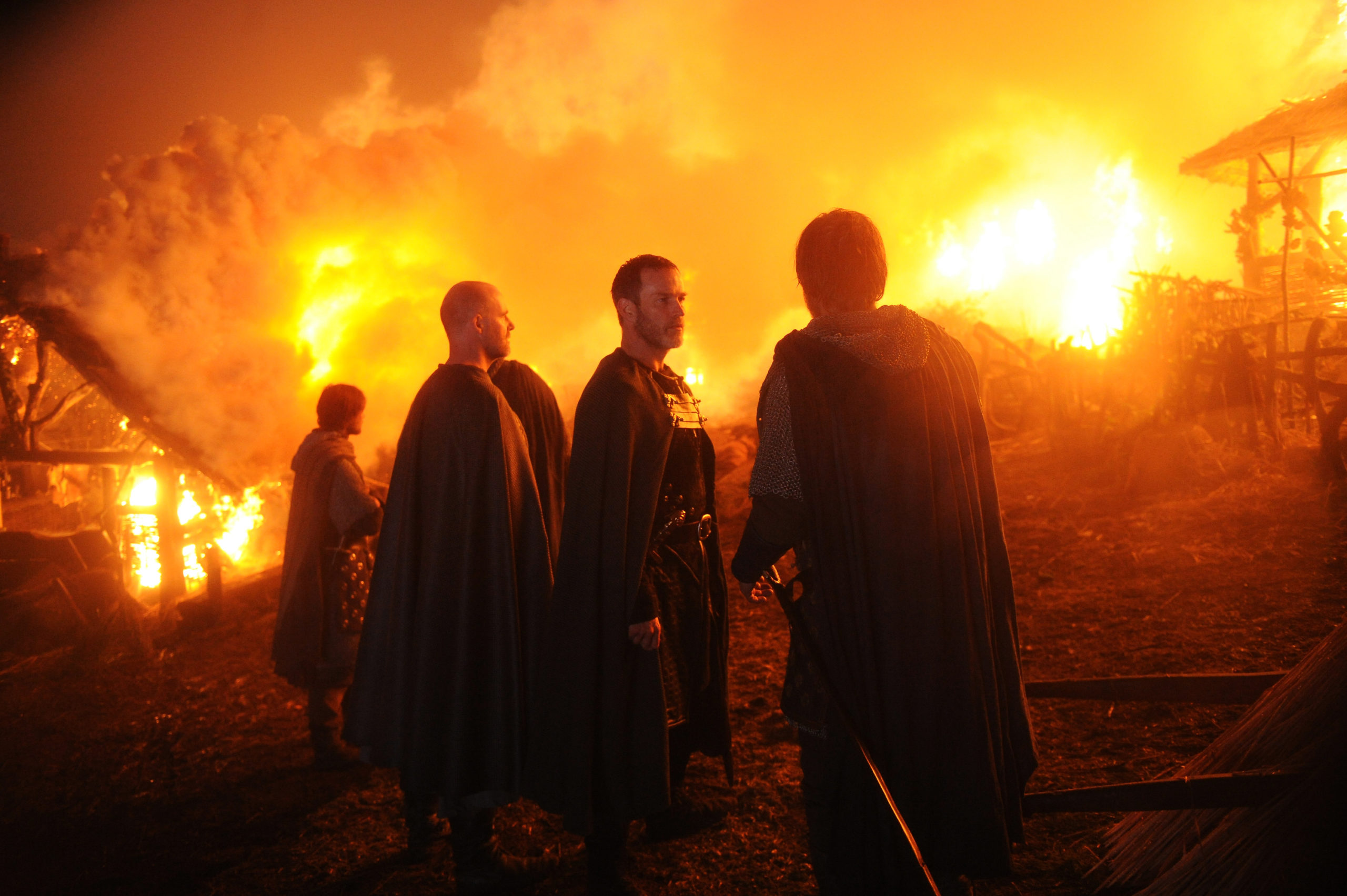
Sometimes, the idea for a show strikes a creator like lightning, a brief flash that burns an indelible after-image in the brain. Sometimes, like with FX’s The Bastard Executioner, it’s a much more drawn-out process of brainstorming with other producers, inching towards a fully-realized series. TBX creator Kurt Sutter’s seven-season hit Sons of Anarchy finished its run on FX a mere nine months ago, and before then he’d been a writer on FX’s The Shield, so he was merely casting around for something different. “It wasn’t so much about looking for some period piece,” he says. “I just knew I didn’t want to do anything else—at least right away—in the contemporary crime genre.”
After many a lengthy discussion with executive producer Brian Grazer, the bloody medieval adventure took shape, and executives at FX leapt at the opportunity to include another Kurt Sutter show in their stable. Sutter called us up to provide a few more stories.
RELATED: Roush Review on The Bastard Executioner | (Video) The Cast Warns of ‘Gore, Violence and Blood’
Was the Welsh rebellion element there from the beginning?
It wasn’t! I was thinking of setting it somewhere in Northern England, but then we were going to shoot in Wales. I knew there was a rich history with the Welsh but didn’t quite know how deep it went until I started doing that research. Then everything fell into place, because at that point in time, there was so much hatred, and this culture of rebellion, and these marcher barons at odds with King Edward.
England in the Middle Ages can get a little confusing, history-wise. Is that something viewers should be worried about?
I know more about the f–king Plantagenets and English history than most English people, now. [Laughs] But you don’t have to know anything about Wales or the British or kings to watch. Everyone understands the concept of rebellion and fighting back against the oppressor.
Here’s what I do love: Historically, this period of time in England and pretty much every other part of Europe, it’s a fascinating time for me. It’s pre-Renaissance, there’s no Age of Enlightenment yet, there’s been like 19 f–king Crusades and the last 12 have failed, and Roman Catholicism is just being jammed down everyone’s throat, and if you’re a Muslim or a Jew, you’re banished. And yet you have this culture and this people who are half a generation away from complete paganism. So everybody still believes in f–kin’ witches and fairies and trolls and sh-t, and you’re having this whole other manipulation of spirituality being done, and a minuscule fraction of the population is educated and can read. So it’s this weird time where it’s still the Dark Ages, and we’re just starting to claw our way out of it. But we’re not quite there yet.
RELATED: Visit Our Fall Preview Page to Check Out New Shows
How big a role does the shifting religious landscape play, particularly with a mystical-but-faith-driven character like Annora (Katey Sagal)?
The irony that Annora’s sort of labeled a witch—and ultimately has this very deep and centered spirituality and faith—is interesting to me. And I don’t really write to this idea, but the notion that when they packaged Catholicism to sell to the Romans, and spun teachings of Jesus into a f–kin’ fairytale, part of the thing they did was go back to all the pagan faith rituals and say, “OK, what can we pick and choose that will feel familiar to people? So, what if we do the wine and the blood and the cross and the iconography?” All that stuff you can tap right back to some f–kin’ tree in some f–kin’ forest in the middle of f–kin’ nowhere. They were smart enough to tie that in so there was some familiarity to what people were used to f–king worshipping, in terms of the sales pitch. …The Vatican is going to love this show. [Laughs]
Corbett (Stephen Moyer) seems to be one of those do-anything-for-power types.
I think there’s genuine sadness that his friend Ventris has passed, but the next thought is, “How do I turn this to my advantage?” He definitely is the manipulator or puppet master, at least in this first season anyhow. With Ventris, it was sort of like, actually, George Bush and Dick Cheney’s relationship. And Corbett is Cheney. Just whispering in Ventris’ ear so he’d know what to say, and giving him the cue—he’s that guy. But the problem with people like that is, you then really have to have a great actor like Stephen who can give stuff nuance and not land too hard on the mustache-twirling. You also really have to make an effort to write against that. Find the moments of vulnerability, and have him make mistakes.
And you’ve got an actual Welshman—and The Americans lead—Matthew Rhys playing rebellion leader Gruffudd y Blaidd.
Oh, let me tell you that story! I didn’t know Matthew personally, but I was a huge fan. And for this project, there were a couple roles open, and I’d sent him the script to have him look at. I didn’t know where his commitment was at with The Americans, I was thinking maybe Ventris… And then, ultimately, I found out that The Americans was gonna go for another season, and the network couldn’t have the same actor in two series regular roles. So I said, “Yeah, dude, I don’t think it’s gonna work, but it was so great talking, thanks.”
But he loved the project, ’cause not only is he Welsh, he’s f–king Welsh. He’s a total native son, and loves this time period, and has been wanting to do something with the rebellion. He sent me a thing back saying, “Hey, what about Gruffudd?” And I’m like, “Dude, that was like an afterthought in the pilot. It’s, like, one line. I was gonna hire some older dude to do it.” And he’s like, “Nonononono I wanna do it!” I was like, “Come on.”
The next day I get this e-mail from him with a picture of him in a grey beard and long hair from something he did, and he’s like, “Look how old I look!” Like, this f–king guy. “Do you realize it’s like three lines and one scene?” He goes, “Yeah yeah yeah!” So I’m just like, OK, fine. I went to FX and got approval to put him in three episodes. It was great, because I could expand that role, and come up with his mythology and lineage. He shows up in a few great scenes in an episode I’m writing now, Episode 6, and will probably come back for one more at the end. But Matthew said he’d told his father what he was doing, and his father asked, “How much are you paying them?” [Laughs] And then he read the scene in the pilot to his father, you know, “Go back to hell, marcher barons,” and his dad started weeping.
It was so wild, because where we shot that battle sequence was maybe an hour and a half outside of Cardiff. And we’re shooting, and he’s looking around and beaming, and I’m like, “Uh, what’s up?” And he’s like, “Dude”—well, not dude, because he doesn’t say “dude”—but he looks at me and goes, “I basically grew up several fields from here.” [Laughs] Just waved his hand as though that’s how they tell distance, like, “Yes, several fields.” So not only was he there, it was on his home territory. He couldn’t have been more thrilled. [Laughs] I was like, “F–k, man, how can I not hire this guy?”

